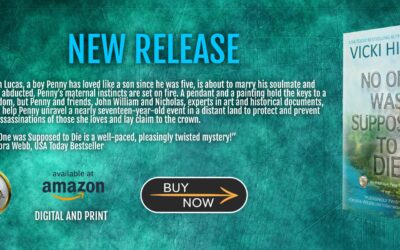WARNING: THIS IS A NO-EDIT ZONE…
Inspiration comes to us all in different ways and it impacts us in different ways. Let’s prove it. Listen to Staff Sgt. Angie Johnson, USAF in this video of ROLLING IN THE DEEP:
[youtube=http://www.youtube.com/watch?v=eBaskRZDbNA&feature=player_embedded]
What’s your emotional reaction? Note it. Stop and write it down.
Now, what did you react to? The music, the lyrics, Staff Sgt. Angie Johnson’s voice? The group’s environment? The lack of adornment? The BDU–battle dress uniforms–these soldiers are wearing? Write it down.
On the lyrics. What is this song about? What does it speak to you? Is it a song about love lost? About despair? About falling down but getting back up? About the kind of crying that runs so deep inside you, those tears are rolling in the deepest recesses of your soul? Or maybe the lyrics evoke a feeling of frustration and broken dreams, for coming so close to realizing your dreams and missing, of being used or betrayed. Or maybe of being under-appreciated or underestimated.
Or maybe none of those things snagged you. Maybe you related not to yourself or your situation but to the other person in whatever conflict challenge has occurred in your life. Perhaps your’s is a “you blew it reaction” and contains a “Man, when it hits you what you’ve lost, you’re going to regret it–HUGE.”
Yet your reaction might be none of those things. It might be that you homed in on the verse that advises: “throw your soul through every open door.” It also suggests counting your blessings and seeking whatever you most want, addresses sorrow turning to gold and reaping what you sow. Maybe that’s the part that resonated with you.
My points are these:
- 1.Whatever your take is, odds are high it is an emotional reaction.
- 2.Whatever your emotional reaction is, odds are high it is seated in your personal perception of the whole of this. Music, lyrics, environment–your sensory perceptions–filtered through your current circumstance and your feelings and attitudes toward and about that circumstance.
- 3.Any and all aspects and reactions that are honest are valid.
- 4.Whatever is tapped in you is very likely rooted in universal emotion. Meaning, emotions that most human beings relate to as individuals. The emotions that spark not sympathy but empathy (love, anger, shame, despair, regret, honesty, fairness, retaliation and on the list goes).
- 5.Your reaction and the aspect or attitude you have changes. Listen to this again in a week and you might well have an entirely different reaction–and it too will be seated in emotion but through your own shifted perspective. Why? We change. Our attitudes change. Our emotions change. But you still will react. You just get a different emotional tap.
How does this relate to books?
The exact same thing happens in books. The reader reacts to a universal-emotion tap and sees the story and characters and setting–all aspects of the novel–through that prism. The prism that is influencing whatever is evoked in the reader.
Writers write stories that evoke emotion in them. Readers react to the emotion–but not necessarily in the same way that the writer reacted. Not necessarily on the same emotion but on one relatable to them in their own lives.
So what do we as authors learn from this? What can we take away from it that best serves our work and our readers?
First is an understanding about the universal power of universal emotion–that relatable aspect that creates a bond and a connection.
Second is that a story isn’t always the story for the reader. While we might write a story about betrayal, a reader could perceive that story as one about broken dreams. A response can be personal or professional. It can bring up close and personal the troubles of another–a friend, a child, a parent, a resented stranger who has impacted someone close–or not so close. (Think Casey Anthony. Think Callie Anthony. Think George or Cindy Anthony.) Same story, different reactions. Different relatable aspects.
Does this insight help or hurt the author? The answer to that, in my humble opinion, is up to the author. If s/he writes honestly, plays fair with the reader, tries to be even-handed in both sides of a conflict, then the insight should benefit the author. If not, it’s definitely a hindrance–and worse, a missed opportunity to connect with the reader in a way that is significant to that reader.
Whether through a song, a music video or a book, inspiration comes in many ways and is related in many ways. Some are intentional, some are not but are as a consequence of tapped emotions.
That’s the biggest point. In the end, storytelling, whether through song or book, requires a potent vehicle. That vehicle is emotion.
And carried on that emotion in whatever form is inspiration.
Blessings,
Vicki
P. S. I’m considering combining all of my blogs into one–this one. But out of respect to my readers, some of whom have been with me for over a decade, I want to hear what you have to say about it. Please pause a moment and take the poll. It provides a place for your vote and your comments. Take the BLOG POLL here.




